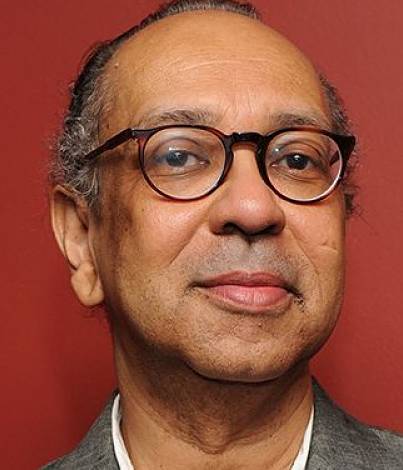George Costello Wolfe is one of the most celebrated American playwrights and directors of theater and film. Known for his five Tony Awards, Wolfe was born in Frankfort, Kentucky on September 23, 1954. His mother Anna Lindsey-Wolfe was a librarian and principal at the all-black Rosenwald Laboratory School in Frankfort, Kentucky, and his father Castello was a clerk for the Kentucky Department of Corrections.
Growing up in Frankfort he attended Frankfort High School where he joined the drama club and became a writer for the school’s literary magazine. Enthusiastic about theatre as a teen, Wolfe spent his summers at theatre workshops at Miami University in Oxford, Ohio where he first began directing plays. In 1972 Wolfe enrolled in Kentucky State University but after a year transferred to Pomona College in Claremont, California, where he received a Bachelor of Arts in Theater in 1976. While at Pomona College, he directed Up For Grabs, which was chosen as Pacific Southern Regional’s winner at the American College Theater Festival.
In 1976 Wolfe met Bernard Jackson who one year later funded Wolfe’s the first production Tribal Rites at the Inner City Cultural Center in Los Angeles. Wolfe returned to school and in 1983 received a Master of Fine Arts degree in dramatic writing and musicals from New York University. His plays Paradise (1985) and Colored Museum (1986) garnered Wolfe his first national attention. Colored Museum won the Dramatists Guild’s Elizabeth Hull-Kate Warriner Award in 1986 and in 1989 his play Spunk won the Obie award.
In 1990 Wolfe became the resident director and producer of the New York Festival. Soon afterwards he suffered kidney failure and in 1991, William Wolfe, George’s older brother, donated his kidney to the artist.
Wolfe recovered and in 1991 he was named artistic director and producer for the New York Shakespeare Festival. In 1992 he produced and directed Jelly’s Last Jam and in 1993 his Angels in America won a Tony award.
Wolfe presented the musical Bring in ‘da Noise, Bring in ‘da Funk in 1996, which used tap dancing to explore black history, followed by other Broadway hits, including The Tempes in 1995, Elaine Stritch at Liberty in 2002. Later that year he directed Suzan Lori Parks’ Pulitzer Prize-winning play Topdog/ Underdog.
In 2004, Wolfe made his film directing debut with HBO’s Lackawanna Blues which earned numerous awards including the 2006 Directors Guild Award for Best Directorial Achievement. Wolfe also directed the film Nights in Rodanthe which premiered in September 2008.
Wolfe’s more recent Broadway productions include A Free Man of Color (2010), The Normal Heart (2011), Lucky Guy (2013) and in 2016, Shuffle Along, a remake of the first black musical on Broadway in 1921.
In 2017, Wolfe, a member of the President’s Committee on the Arts and Humanities, resigned to protest the comments of President Donald Trump following a Neo-Nazi rally in Charlottesville, Virginia where one person died.
In 2018 Wolfe directed The Iceman Cometh starring Denzel Washington and in 2020 he directed Overcoming, a play he described as “unapologetically Black and Gay.” Wolfe continues to craft his artistic visions into classic plays.

